
Secretariat, also known as Big Red, was a champion American thoroughbred racehorse who is the ninth winner of the American Triple Crown, setting and still holding the fastest time record in all three races. He is regarded as one of the greatest racehorses of all time. He became the first Triple Crown winner in 25 years and his record-breaking victory in the Belmont Stakes, which he won by 31 lengths, is widely regarded as one of the greatest races in history. During his racing career, he won five Eclipse Awards, including Horse of the Year honors at ages two and three. He was nominated to the National Museum of Racing and Hall of Fame in 1974. In the Blood-Horse magazine List of the Top 100 U.S. Racehorses of the 20th Century, Secretariat was second to Man o' War.

Stewart Elliott is an American thoroughbred jockey.

The Canadian Horse Racing Hall of Fame was established in 1976 to honour those who have made a significant contribution to the sport of harness and Thoroughbred horse racing in Canada. It is located at Woodbine Racetrack in Toronto, Ontario.

John R. Velazquez is a Puerto Rican jockey in Thoroughbred horse racing. He began his career in Puerto Rico and moved to New York in 1990. In 2004 and 2005 he was the United States Champion Jockey by earnings and both years was given the Eclipse Award for Outstanding Jockey. He was inducted into the Horse Racing Hall of Fame in 2012, rode his 5,000th winner in 2013, and became the leading money-earning jockey in the history of the sport in 2014.

Whisk Broom II (1907–1928) was an American-bred Thoroughbred racehorse who raced in the United Kingdom and in the United States. Whisk Broom showed high class form during four seasons of racing in Europe, but produced his best performances when returning to America in 1913. He claimed the New York Handicap Triple by winning the Metropolitan Handicap, the Brooklyn Handicap, and the Suburban Handicap, a feat unmatched until Tom Fool achieved it forty years later. Kelso in 1961 and Fit To Fight in 1984 later joined them as the only other horses to win the Handicap Triple. Whisk Broom II's career was ended by injury after his triple success, but he went on to become a successful breeding stallion.

Sporting Blood is a 1931 American MGM pre-Code sports drama film directed by Charles Brabin. The film stars Clark Gable, Ernest Torrence, and Madge Evans. Two other pictures bore this same title, one released in 1916 by Fox and another by MGM in Sporting Blood (1940). Although they, too, centered on horse racing, none of the plots had any direct connection with the others.
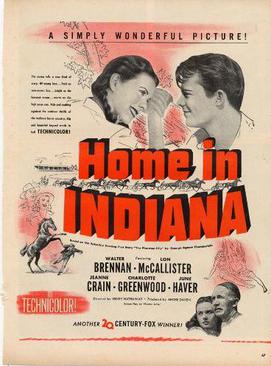
Home in Indiana is a 1944 Technicolor film directed by Henry Hathaway. The film, that stars Walter Brennan, Lon McCallister, Jeanne Crain, June Haver and Charlotte Greenwood, is based on the novel The Phantom Filly by George Agnew Chamberlain (1879–1966). The film was remade in 1957 as April Love.
Preston Morris Burch was an American Hall of Fame Thoroughbred racehorse trainer, breeder, and owner.
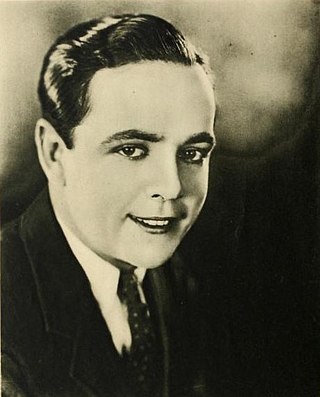
Robert Agnew was an American movie actor who worked mostly in the silent film era, making 65 films in both the silent and sound eras. He was born in Dayton, Kentucky.
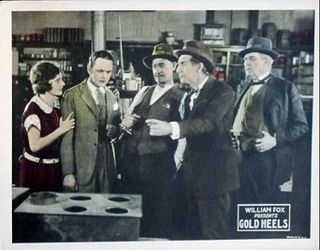
Gold Heels is a 1924 American silent drama film produced and distributed by Fox Film Corporation and directed by W. S. Van Dyke. The film is loosely based on legendary racing horse Gold Heels and the novel Checkers by Henry Martyn Blossom.
W. Elliott Walden is the President and CEO of racing operations for WinStar Farm near Versailles, Kentucky and a former Thoroughbred racehorse trainer.
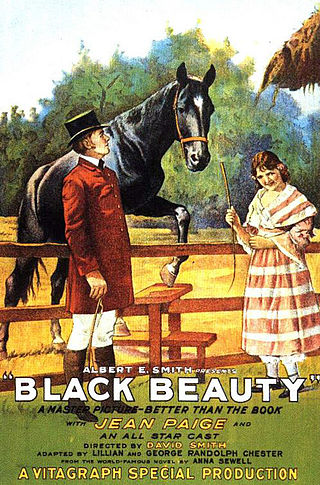
Black Beauty is a 1921 American silent film version of Anna Sewell's 1877 novel of the same name. Black Beauty is an autobiography of a horse, who tells the story of his life and of the people surrounding it. This film exists in an incomplete state with four of seven reels preserved at the Library of Congress.

Double Speed is a lost 1920 American silent comedy-drama film produced by Famous Players-Lasky and distributed by Paramount Pictures. It was the debut directorial effort of Sam Wood and starred Wallace Reid in another of his racing car films.

Only 38 is a lost 1923 American drama silent film directed by William C. deMille and written by Clara Beranger, Walter Prichard Eaton and A.E. Thomas. The film stars May McAvoy, Lois Wilson, Elliott Dexter, George Fawcett, Robert Agnew and Jane Keckley. The film was released on June 17, 1923, by Paramount Pictures.

John Hugh Elliott was an American actor who appeared on Broadway and in over 300 films during his career. He worked sporadically during the silent film era, but with the advent of sound his career took off, where he worked constantly for 25 years, finding a particular niche in "B" westerns.

Under Western Skies is a 1926 American silent Western film directed by Edward Sedgwick and starring Norman Kerry, Anne Cornwall, and Ward Crane.
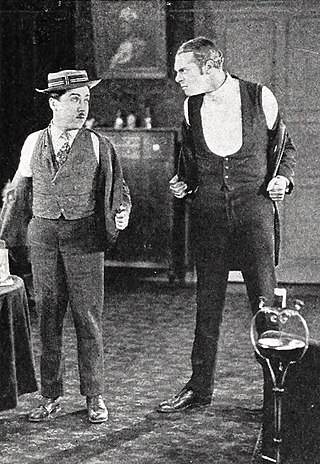
Keep Smiling is a 1925 American silent comedy film directed by Albert Austin and Gilbert Pratt. It stars Monty Banks and Glen Cavender.

Palace Pier is a British Thoroughbred racehorse. He won two minor events as a juvenile and a handicap race on his three-year-old debut before emerging as a top-class performer with victories in the St James's Palace Stakes and Prix Jacques Le Marois. In 2021 he won the Sandown Mile, Lockinge Stakes, Queen Anne Stakes and a second Prix Jacques Le Marois.

Quarantined Rivals is a 1927 American silent romantic comedy film directed by Archie Mayo and starring Robert Agnew, Kathleen Collins and John Miljan. It was produced by the independent studio Gotham Pictures. It was based on a 1906 short story of the same title by George Randolph Chester.

The Million Dollar Handicap is a 1925 American silent sports drama film directed by Scott Sidney and starring Edmund Burns, Ralph Lewis, and Ward Crane. It is based on the 1902 novel Thoroughbreds by William Alexander Fraser. The film was released in Britain the following year under the alternative title The Pride of the Paddock.


















